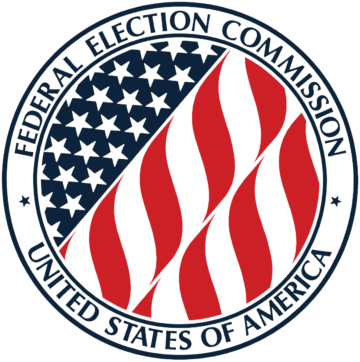Recently, there’s been a flap at the FEC about whether the Commission should have found certain actors were in violation of the laws governing disclosure for making contributions to “super PACs” through LLCs that, at least in some cases, were formed for the purpose of making those contributions. The idea is that, in such cases, the law requires the disclosure not just of the LLC as the donor, but of the person(s) creating and funding the LLC. This position doesn’t seem mandated by the statute, and it is fraught with some peril, since it would invite complaints asking the FEC to investigate every LLC that contributes to a super PAC. But it isn’t a bizarre interpretation of the statute either, and, in many ways, it seems to be the interpretation most harmonious with the statute’s language and intent.
Looking at several complaints where persons had established LLCs, made contributions, and not disclosed the names of those forming the LLCs, the agency’s command and control commissioners wanted to find violations of the law. The other commissioners felt that, while the law might require such disclosure of the person establishing the LLC, given the potential confusion in the statute, findings for past behavior were inappropriate without better warning to the “regulated community” – with such warning presumably concluded through their statement.
Much of this debate turns on whether a reasonable person would have known that the law might treat the LLC contribution as a contribution by the individual person(s) who had established the LLC. The agency’s command and control commissioners are pretty set on this one – as I noted in an earlier post, their Statement on the matter simply refuses to engage the arguments and cases cited by their colleagues on the other side.
So, could people legitimately claim some confusion? With that in mind, we found interesting these excerpts from a September 30, 2014 interview with an acknowledged campaign finance expert:
Q: Well, where do these LLCs come from? Just so I’m clear. Everybody said you can escape the statute by setting up an LLC.
EXPERT: They come as an operation of state law. So the statute addresses persons, so if people are setting up separate persons under state law, then this FECA definition of person doesn’t reach them.
***
Q. When the statute says it covers donations that are made directly or indirectly, if someone set up an LLC with the intent and purpose of being able to make donations that they couldn’t otherwise make, would that count as indirectly?EXPERT: Well, I don’t think so, because it’s a different person making the contribution.
Q: So, how does indirect work without going through somebody else? Isn’t that what indirect means, going through somebody else, or something else?
EXPERT: Well, it could be through someone else, but it wouldn’t — if you had actually gone to the trouble of setting up a separate legal person I don’t think that’s what it, the statute was addressing.
***
Q: It wouldn’t be indirect at all, if you set up an LLC and then the individual starts writing checks those are direct payments to members of Congress, or to the politicians, right?
EXPERT: Well, they’re from the LLC.
***
Q: Are you telling me that if I set up an LLC, … my LLC can make contributions?
EXPERT: If the individual makes a contribution —
Q: Right.
EXPERT: — that’s a different person.
In fact, this interview is from oral argument in the U.S. Court of Appeals for the D.C. Circuit – the questioners are judges on the court, and the quoted expert is FEC Associate General Counsel Kevin Deeley, one of the senior and most experienced hands at the FEC. The case is Wagner v. Federal Election Commission.
I don’t mean to suggest that the FEC is bound by comments made at oral argument in a different matter. The point of law was a bit different as well – Mr. Deeley was defending the statute’s complete prohibition on contributions by individuals who were government contractors, against an equal protection challenge, by arguing that those individuals could easily set up LLCs, allowing them to contract through the LLC, and then make political contributions as individuals, thus eliminating the alleged equal protection violation.
But it once again shows that the law is not always so cut and dried as some would like to think – or at least to claim.
In past enforcement actions, we’ve seen that even if an individual is the sole owner of a corporation, any contribution that corporation makes to a candidate – even the candidacy of the corporate owner – is considered a contribution by the corporation (and hence illegal, since corporations cannot contribute to candidates).[1] But if the same corporation, owned by the same individual, makes a contribution to a super PAC (which is legal) the command and control commissioners want to insist that the contribution is now an individual contribution, attributable to the individual.
A reasonable distinction here might be intent, and that seems to be the position of all six commissioners going forward. Presumably, the Commission would hold that an LLC that is an ongoing, operational business would not have to disclose the names of its owners when contributing to a super PAC. Correspondingly, the Commission might hold that a closely held corporation formed solely for the purpose of making political contributions can now do so, with those contributions attributed to the owner. Of course, it’s hard to figure out why anyone would want to form such a corporation if they can’t use the corporation to shield individual identity, so this would be a small concession. Nevertheless, we doubt the Commission would actually agree to this rule.
Lawyers are known for being too clever by half, and that no doubt is why some commissioners are so apoplectic at allowing these past actions by LLCs to slide past. To them, the law was pretty clear, even if tricky lawyers can conjure up an argument around it. But one can’t also help but be bothered by the FEC’s recurring game of “heads I win, tails you lose,” as Chief Justice Roberts has called it.[2] A small, individually owned corporation and an individual will be treated as separate persons when that is advantageous to the regulatory project; but they will be treated as one and the same when that is advantageous to the regulatory project.
Too often “the law” simply means “whatever advances the regulatory project.” And that can’t be right.
[1] See FEC v. Kalogianis, 2007 WL 4247795 (M.D. Fla. 2007) (candidate’s closely held corporation loaned money to campaign); MUR 3191, Christmas Farm Inn, Inc. (1995) (candidate’s closely held corporation loaned money to campaign); MUR 4313 (Coalition for Good Government) (2002) (respondent created a corporation for purposes of making an independent expenditure, and deposited personal funds with corporation for that purpose; deemed to be illegal corporate expenditure).
[2] Federal Election Commission v. Wisconsin Right to Life, 551 U.S. 449, 471 (2007).














